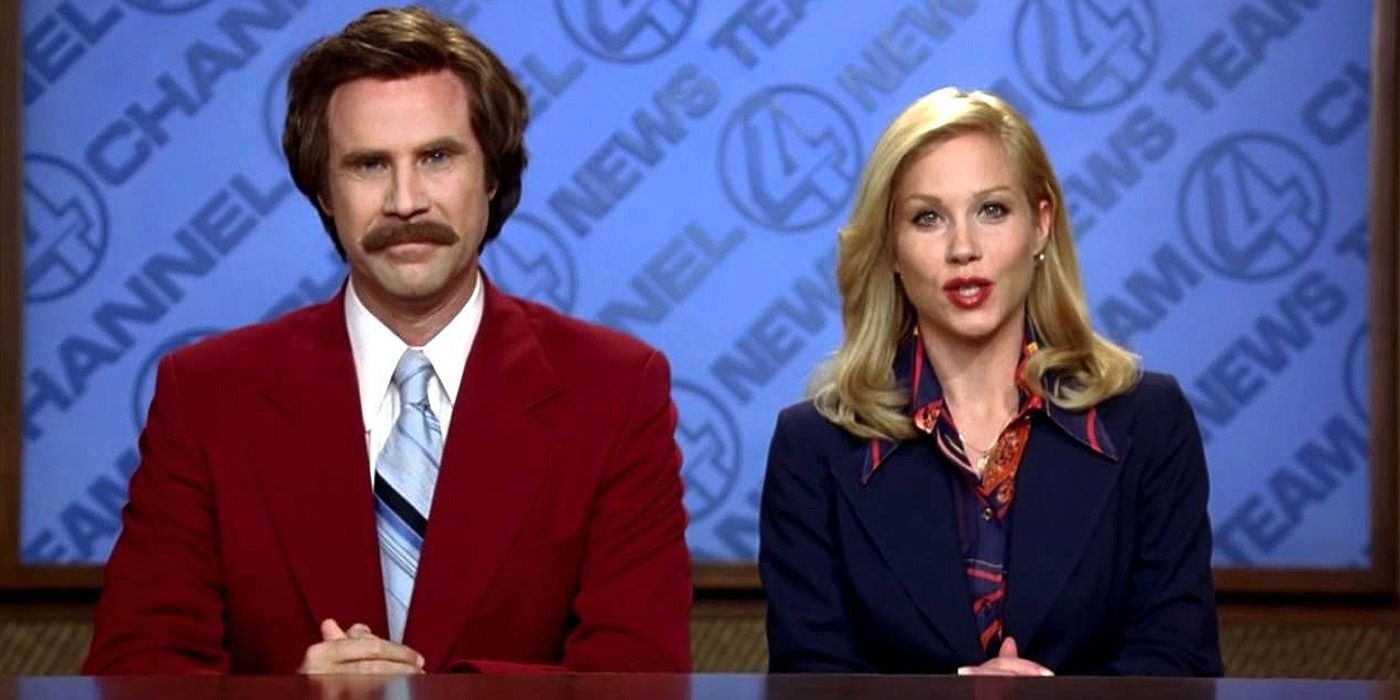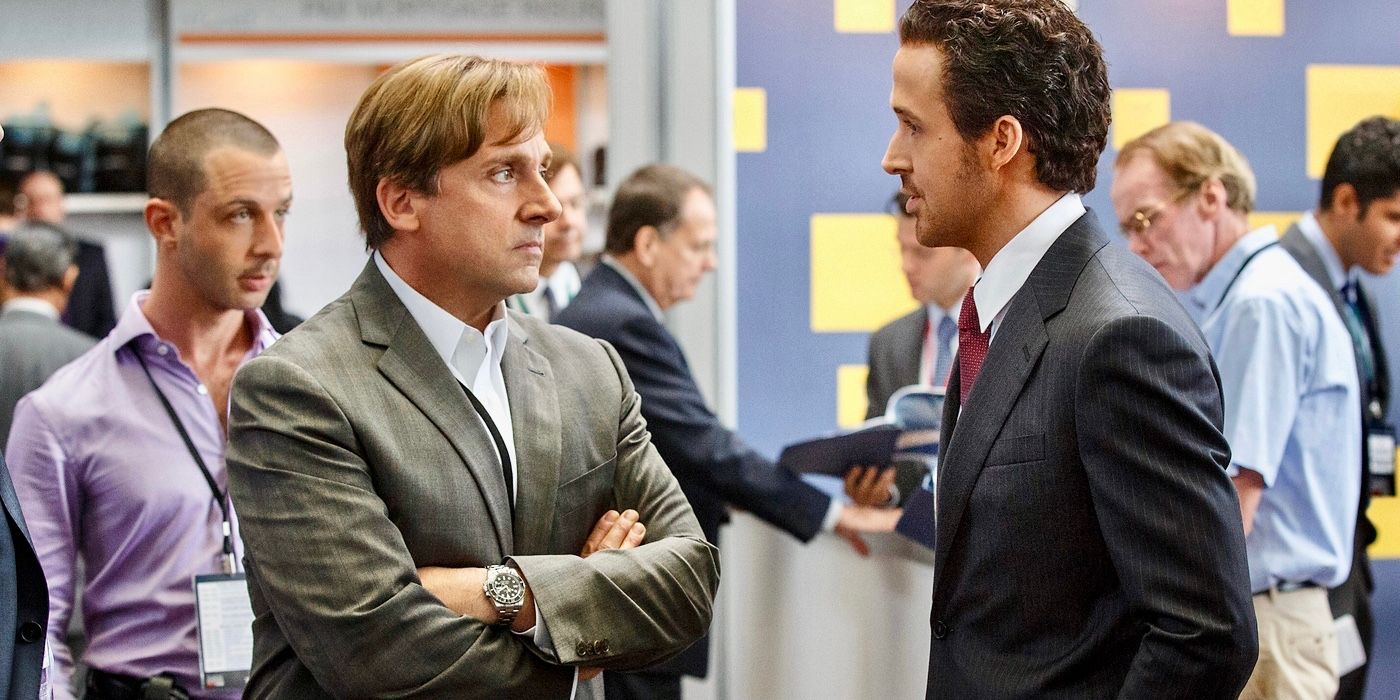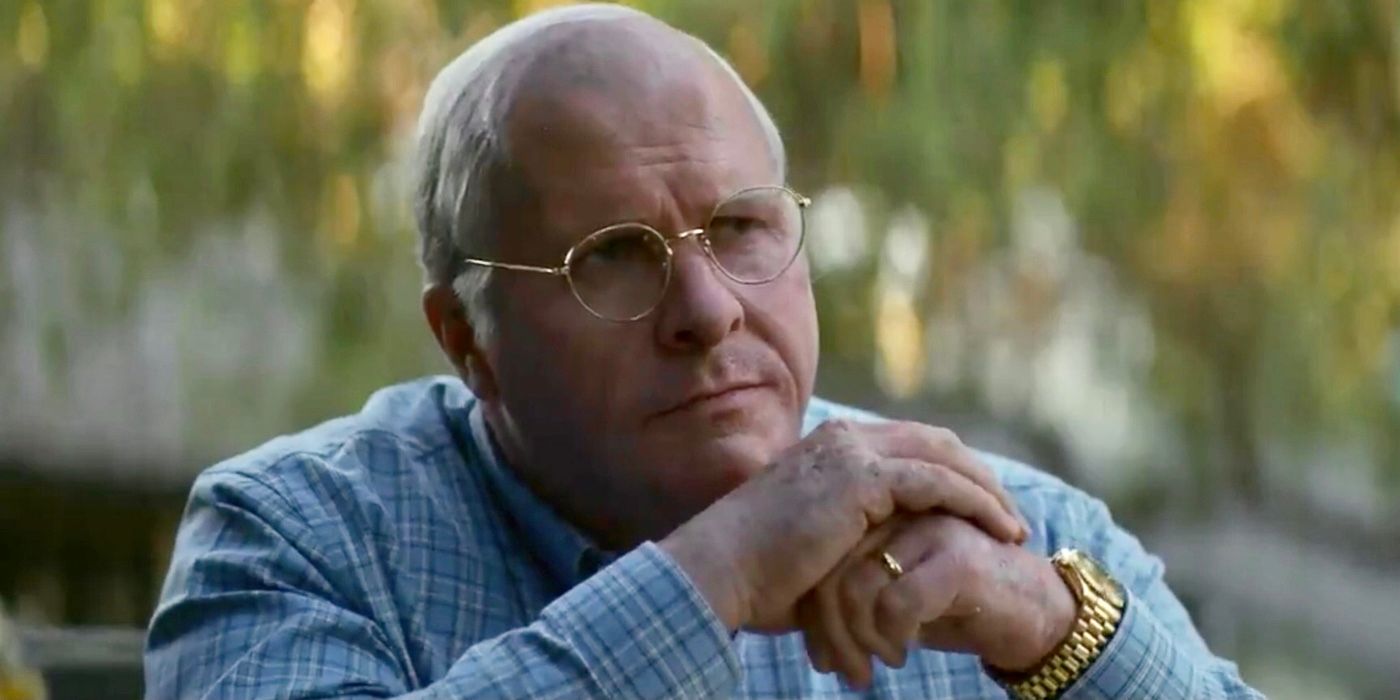While Don’t Look Up has been criticized for being overly didactic in its messaging, there is a reason that its director Adam McKay has largely abandoned subtlety in his recent releases. Early on in his Hollywood career, few casual moviegoers would have singled out Adam McKay as a great satirical mind. While the director has always been a skilled helmer of crowd-pleasing comedies, his early efforts such as Anchorman: The Legend of Ron Burgundy and Talladega Nights: The Ballad of Ricky Bobby relied more on absurd humor than pointed political satire.
While both these early hits featured subtle jabs at various cultural ills, it was not until the 2010s that McKay became the left-wing Aaron Sorkin he is now known as. The success of The Big Short, a tragicomic dramatization of the 2008 Wall Street crash, marked a turning point for the director’s work as McKay moved away from surreal comedy and toward dark, explicitly political satire. This shift eventually saw McKay produce Vice, a biopic of former vice president Dick Cheney that earned equal acclaim and disavowal for the movie’s unapologetic condemnation of its subject.
Related: Don’t Look Up’s Downer Ending Inverts 2021’s Other Bleakest Finale
Now, the recent release of Don’t Look Up has seen McKay divide critics once more with an even more blatant satire, this time targeting the media, political class, and uber-wealthy’s inaction around climate change. While McKay has always slipped social commentary into his comedies, many critics complained that Vice and Don’t Look Up were too on-the-nose in their political satire and felt more like a live-action South Park than believable stories starring human characters. However, a look back on McKay’s gradually changing focus proves that there is a valid reason for the director to abandon subtlety in favor of punk-influenced, shamelessly obvious satire.
McKay’s Early, Funny Ones (Weren’t Taken Seriously)

Although McKay’s early work did always include an element of satire, the sheer goofiness of his big hits meant that many viewers missed this subtle undercurrent or, in some cases, misinterpreted it entirely. For example, Anchorman offered a pointed critique of boorish workplace sexism, but its cast of goofy characters stole the show and became iconic, quotable figures so quickly that the movie was seen as no sharper a satire than the Austin Powers series. Similarly, Talladega Nights was a little less subtle about its jabs at patriotism, jingoism, and bigotry but, again, earned a fandom among viewers who un-ironically celebrated Rick Bobby’s “USA first” mentality. Released at the height of the Iraq War, a movie that McKay envisioned as a condemnation of American chauvinism was instead read by many viewers as an endorsement of this mindset, resulting in the director opting for a less subtle route the next time he picked up a camera.
What Made Adam McKay Angry

Judging by 2009’s The Other Guys, an otherwise playful cop comedy that took the economic devastation wrought by a corrupt Wall Street deadly seriously, the 2008 financial crash was a major catalyst for McKay’s stylistic turn into more explicit satire. The sharpest scenes in The Other Guys are not the many Shane Black-spoofing action-comedy set-pieces, but rather the moments wherein the two heroes note how much damage Wall Street’s illegal trading has wreaked on average Americans and how little anyone involved was held responsible. Granted, McKay still returned to the absurd, silly side of cinematic comedy with Anchorman 2, but that sequel’s muted reception paled in comparison to that of his next movie, The Big Short.
The first focused satire from McKay, The Big Short depicted the people behind the 2008 crash as dangerously clueless and arrogant, but nuanced and ultimately human antiheroes. However, even this level of empathy soon became a problem for McKay as critics praised The Big Short for depicting the “impossible decisions” made by its feckless “but empathetic” antiheroes. As a result, McKay made took the South Park route and abandoned subtlety entirely, making his anger even more obvious and direct in his next outings. As a result of seeing reviewers and viewers alike misinterpret The Big Short as an apologia for Wall Street bankers, rather than an attack on their greed and short-sightedness, McKay ensured that no one could view Vice and emerge unsure of whether Dick Cheney was a good person.
Related: Don’t Look Up Cast & Character Guide
Vice and Don’t Look Up Are Dark Movies For Dark Times

Humanizing the short-sellers and stockbrokers of The Big Short gained McKay broad critical acclaim, but tamped down the anger driving the satire of the movie. Since then, the director has dived into Juvenalian satire, a relentlessly bleak and mean-spirited style of writing that has rarely found favor in Hollywood outside of Stanley Kubrick’s efforts A Clockwork Orange and Dr. Strangelove. 2019’s Vice left viewers with no option to sympathize with Dick Cheney precisely because McKay had no interest in illustrating “both sides” of the massive body count caused by Cheney’s international policies. Instead, Vice acted as a full-throated condemnation of both Cheney’s domestic and international policies and his personal life, depicting the real-life figure as a monstrous failure of a father, a heartless, duplicitous betrayer of both friends and family, and a power-mad war hawk. After the catchphrases of Talladega Nights were co-opted by the people the movie was made to mock and The Big Short was read as proof that “everyone makes mistakes” rather than “Wall Street will ruin American if left unchecked,” McKay opted in Vice to simply make his point impossible to ignore or obfuscate.
The result is a movie about as subtle as The Texas Chainsaw Massacre, but also arguably as effective. Similarly, Don’t Look Up has now earned the ire of many critics and viewers for being smug and on-the-nose. However, the trouble with this criticism is the assumption that subtlety and tact are inherent goods, rather than tools in a filmmaker’s repertoire that are sometimes useful and sometimes unnecessary. Don’t Look Up was never intended to be subtle much like Scream was never intended to be romantic, because the movie’s message and its genre don’t require the use of subtlety. Rather, Don’t Look Up—like Vice, and much of Adam McKay’s later career work—is an urgent, angry polemic designed as a corrective to wishy-washy, noncommittal political satire.
More: Don’t Look Up Ending Explained




